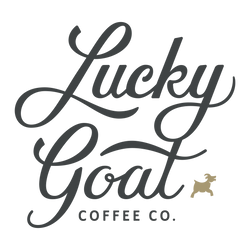Serving Cold Brew from warm hearts
It’s hard to not talk about the things you love. We recently sat down with a few baristas to chat about the things that excite us-- things that steal us from our busy schedules to sit by comfy corner windows with a cup of warm coffee. We found a number of conversations in our cafés aligned with one of our favorite things—our cold brew coffee.
Going into a café for the first time can be an overwhelming experience--especially when said café has a tap system lining the bar. One of the most popular questions our baristas are asked is: “so can I get beer here?” The short answer is no--but here's the long answer. Take a moment, grab a glass of cold brew, and we’ll do the talking.
"Cold brew coffee” is essentially referring the final product of a very intentional and elaborate iced-coffee-making process. But before we get too far into it, it might be important to address the menu items that actually contain our cold brew. These would be Tallyccinos, Goat Bombs, and Tally Bombs. Each of these drinks are variations of the same basic ingredient--darn good cold brew. Let’s get started.
First, we have to get this coffee brewing. One of the more distinguishing factors of cold brew coffee is the brewing method (hints the name “cold brew”). Essentially, instead of using really hot water, we use room temperature water for a much longer period of time. This avoids some harsh and undesirable tastes. In terms of the extraction method, we’re trading temperature for time. We take a combination of beans from Ethiopia and Sumatra, grind them to a relatively coarse size, and throw them in a brewing tank with about 40 gallons of water (that’s over 300lbs!). After thoroughly stirring the coffee, its left to brew overnight.

After we yawn a bit and rub our eyes the next morning, we drain the coffee from the brewing tank and transport it to a conditioning tank where it’ll stay until its kegged. Three things are going to happen in the conditioning tank: 1) the coffee is diluted with water to achieve a desired strength 2) the coffee is chilled to 39 °F so it’s ready to serve and 3) the coffee is infused with nitrogen to add creaminess, allowing it enough pressure to flow from the taps.

Once this process is complete, delicious cold brew is pulled from the tank and put into kegs. After kegging, our lovely baristas tote them to the bar, hook them up, and boom–darn good cold brew.

Keep in mind, all of this is happening in real-time. There are no extended periods of time where your coffee is unintentionally waiting about, slowly loosing freshness. Everything is done to a specific schedule and recipe. The result? Always fresh and delicious cold brew, made specifically for you.








